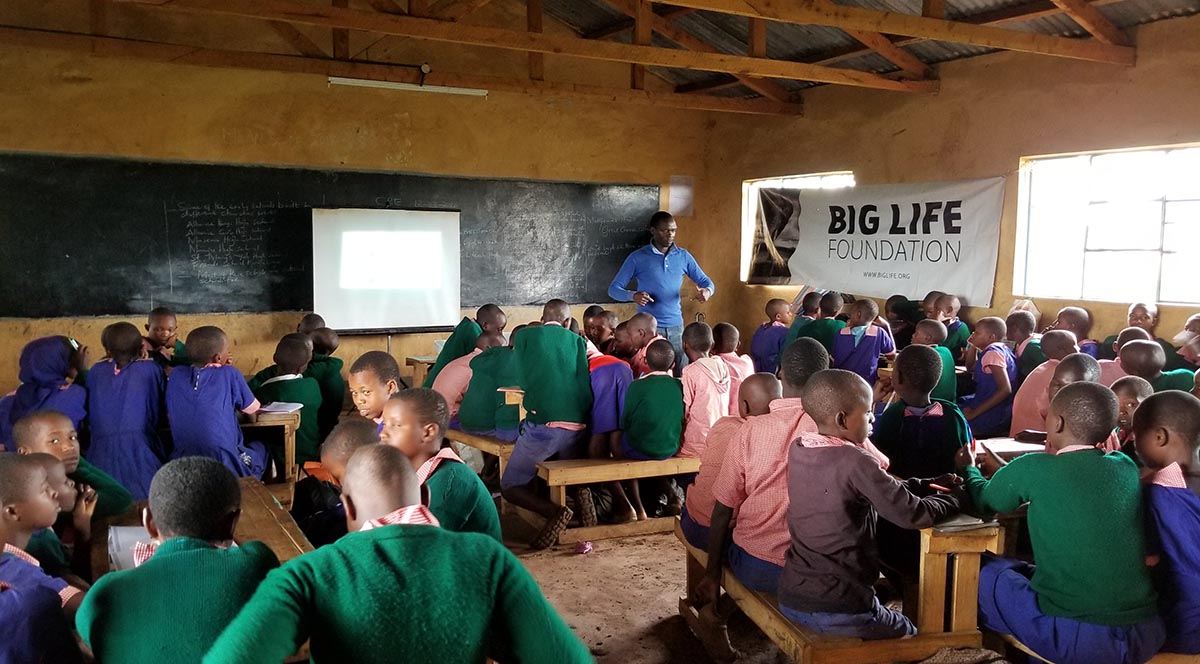
2020 threw a curveball at the entire world, including Big Life’s education programs.
Late last year, Big Life’s conservation education program – which helps develop the next generation of environmental stewards by incorporating conservation education into classroom curriculum – was overhauled and improved to include ranger activities. To help students better understand the critical work rangers do, activities both inside and outside the classroom were developed including a tree planting exercise with rangers, visiting a ranger outpost, and a junior ranger program, among others. Big Life’s conservation education officer, Michael Tipaai, was able to reach 1,406 students and 18 teachers in delivering the first two lessons of the year.
Then the pandemic hit. Schools closed on March 15 and the country came to a standstill for six months while Kenya raced to prevent the spread of COVID-19.
Big Life’s offices reopened September 1st, and Michael quickly got to work adapting the education curriculum to engage students in their home villages. In five village visits, 193 students in grades 7 and 8 were reached.
Kenya’s government had previously announced that schools would remain closed until 2021, but shifted their decision in October for grades 4 and 8 only, due to critical preparations needed for national exams next Spring. In order to focus our resources and maximize the benefit of our curriculum, Big Life will focus on grade 8 students currently in school through the end of the year, and will resume the broader program as soon as students are fully back to school in the New Year.
All of our programs have had to adapt in one way or another this year, and we’re so grateful for the support of our partners through this process including Chester Zoo on curriculum, The Thin Green Line Foundation on the Junior Ranger program, and to LUSH Fresh Handmade Cosmetics for their long-standing support of our conservation education program.
